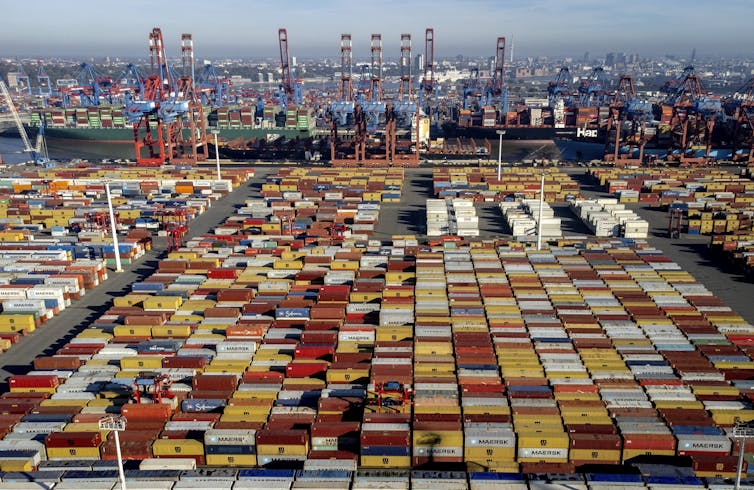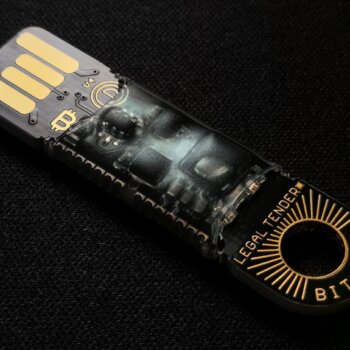Key Takeaway
Blockchain technology is proving to be a promising solution for various challenges in trust and security in network-based applications. It can improve integrity, accountability, and traceability in supply chains, healthcare, banking, property records, voting, and smart cities. Blockchain systems enable decentralized access control of medical records, ensuring all stakeholders’ interests are protected. They also provide real-time transaction monitoring and improved security for banks and financial institutions. Blockchain-enabled voting systems can facilitate a fair and transparent electoral process, making them a key networking technology for building smart cities. The future of information technology is all about decentralization, allowing people to personalize their services, control digital assets, and participate in democratic processes.
People hear a lot about blockchain technology in relation to cryptocurrencies like bitcoin, which rely on blockchain systems to keep records of financial transactions between people and businesses. But a crash in public trust in cryptocurrencies like TerraUSD – and therefore a massive drop in their market value – doesn’t mean their underlying technology is also worthless.
In fact, there are plenty of other uses for this type of system, which does not rely on centralized storage and where many people can participate securely, even if they don’t all know each other.
As a computer scientist exploring new technologies for future smart communication network technologies, I, along with many engineers and developers, have shown that blockchain technology is a promising solution to many challenging problems in trust and security of next-generation network-based applications. I see several ways blockchains are proving themselves useful that aren’t tied to cryptocurrency.
Supply chains
Modern global supply chains require a huge amount of information for the massive number of products being shipped around the world. They suffer from limits on data storage capacity, inefficient paper processes, disjointed data systems and incompatible data formats. These traditional centralized data storage methods cannot efficiently trace the origin of problems, like where a poor-quality product came from.
Storing information on a blockchain improves integrity, accountability and traceability. For example, IBM’s Food Trustuses a blockchain system to track food items from the field to retailers. The participants in the food supply chain record transactions in the shared blockchain, which simplifies keeping track.
Health care
Data ownership and privacy are top concerns in the health care industry. Current centralized systems cannot meet all the diverse needs of patients, health service providers, insurance companies and governmental agencies. Blockchain technology enables a decentralized system for access control of medical records where all stakeholders’ interests are protected.
Blockchain systems not only allow health care service providers to securely share patients’ medical records but also enable patients to track who has accessed their records and determine who is authorized to do so.

Banking and finance
Banking and finance benefit from integrating blockchain networks into their business operations. Instead of trying to develop cryptocurrencies with new or different capabilities, the financial sector has recognized that blockchain systems are a reliable way to store information about traditional currencies like the dollar, euro and yen, as well as financial products.
Blockchains provide consumers with the convenience of being able to monitor their transactions as they are processed, almost in real time from anywhere. Banks also benefit from blockchains, with the opportunity to conduct business between institutions more efficiently and securely.
Property records
Today’s manual process of recording property rights is burdensome and inefficient. Traditional paper documentation is time-consuming, labor intensive, not transparent and vulnerable to loss. Blockchain technology eliminates inconvenience, inefficiency and errors, and reduces the cost by migrating the entire process into a digital form.
Blockchain systems allow owners to trust that their deed is accurate and permanently recorded. Remote access is particularly meaningful to people living in areas without sufficient governmental or financial infrastructure.
Voting
Validating votes and maintaining voter privacy seem like conflicting requirements. Blockchain systems hold promise as a means to facilitate a fair and transparent modern voting system. Because it’s almost impossible to tamper with a blockchain-enabled voting system, it can maintain a transparent electoral process.
In the November 2018 midterm elections in West Virginia, a blockchain-based voting system was used and found to be secure and reliable.
Smart cities
A smart city embeds information and communication technologies into its facilities, infrastructure and services to provide its residents a convenient, intelligent and comfortable living space. A smart city is essentially a network of many devices that can communicate with each other to share data. Connected devices can include people’s smartphones, vehicles, electrical meters, public safety monitoring systems and even homes.
These systems have performance, security and privacy requirements that centralized information systems cannot handle. Blockchain is a key networking technology for building smart cities because it’s able to optimize operations, enhance security guarantees and increase mutual trust among participants.
The future of information technology is all about decentralization. Today’s centralized architecture fails to meet the increasingly diverse needs of people who want freedom to personalize their own services, control their digital assets and more easily participate in democratic processes. Blockchain is a key enabling technology for building any secure and durable decentralized information system.






























